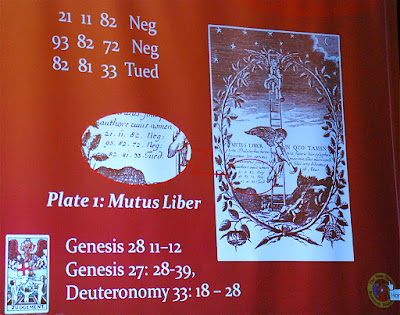On Saturday, February 26, the
Rose Circle Research Foundation will host another of its world renowned conferences, welcoming to its podium none other than Dr. Christopher McIntosh in celebration of the new publication of his
The Rose Cross and the Age of Reason: Eighteenth-Century Rosicrucianism in Central Europe and its Relationship to the Enlightenment in January by SUNY Press in its continuing
Western Esoteric Traditions series. This will take place at Masonic Hall, the headquarters of the Grand Lodge of New York, located at 71 West 23rd Street in Manhattan.
First published in 1992,
The Rose Cross and the Age of Reason has been heralded as an indispensible text, and has fetched prices in the many hundreds of dollars in the secondhand book market. SUNY Press offers this title at $80 per copy.
The publisher offers this summary of the revised text:
“This new edition of Christopher McIntosh’s classic book on the Golden and Rosy Cross order is eagerly awaited. The order stands out as one of the most fascinating and influential of the high-degree Masonic and Illuminist groups that mushroomed in Europe from the eighteenth century onward. Active mainly in the German-speaking lands, it recast the original Rosicrucian vision and gave it renewed vitality. At one point it became politically influential when the Prussian King, Frederick William II, was a member of the order. Historians have often perceived the Golden and Rosy Cross as having had a conservative, anti-Enlightenment agenda, but this study – drawing on rare German sources – shows that the matter was more complex. The members of the order practiced alchemy and operated a degree system that was imitated by later orders, such as the Golden Dawn. Like the latter, the Golden and Rosy Cross exerted a wide and enduring cultural influence. Both the alchemy of the order and its powerful ritual system are insightfully described in Christopher McIntosh’s clear and compelling style.
According to Rose Circle:
Christopher McIntosh was born in England in 1943 and grew up in Edinburgh, Scotland. He studied philosophy, politics and economics at Oxford, and German at London University, later returning to Oxford to take a doctorate in history with his dissertation on the Rosicrucian revival in the context of the German Enlightenment and Counter-Enlightenment. After working in London in journalism and publishing, he spent four years in New York as an information officer with the United Nations Development Program, then moved to Germany to work for UNESCO. In parallel, he has pursued a career as a writer and researcher specializing in the esoteric traditions. His books include The Astrologers and their Creed (1969); Eliphas Lévi and the French Occult Revival (1972); The Rosicrucians (latest edition 1997); The Rose Cross and the Age of Reason (1992), based on his dissertation; The Swan King: Ludwig II of Bavaria (latest edition 2003); and Gardens of the Gods (2005). His fictional work includes the occult novel Return of the Tetrad (1998). He also has a long-standing interest in nature-oriented belief systems. He has lectured widely and is on the faculty of the distance M.A. program in Western Esotericism at the University of Exeter, England. His home is in Bremen, North Germany.
McIntosh is indeed a Freemason, a longtime member of Pilgrim Lodge No. 238 in London. This lodge was founded in 1779 by Germans in London, and still conducts its rituals in German. Read more about it
here.
The Magpie Mason also is the publicist of the Rose Circle Research Foundation, and expects to unleash a blizzard of publicity in a few days in support of this remarkable event. If you are interested in learning about Freemasonry, Rosicrucianism, other esoteric disciplines, or European history, do not miss this conference.



































































































